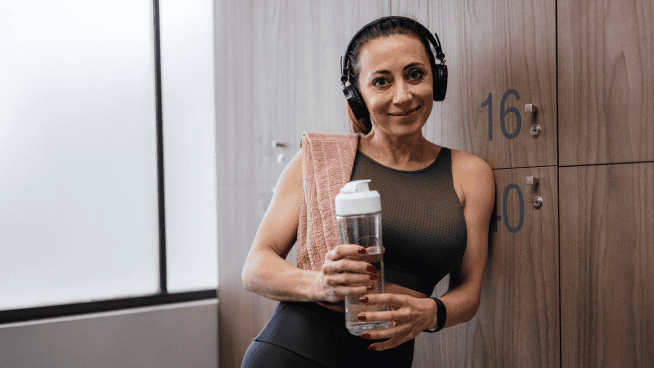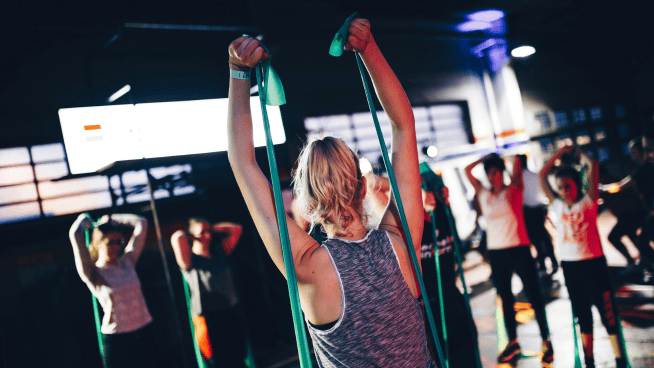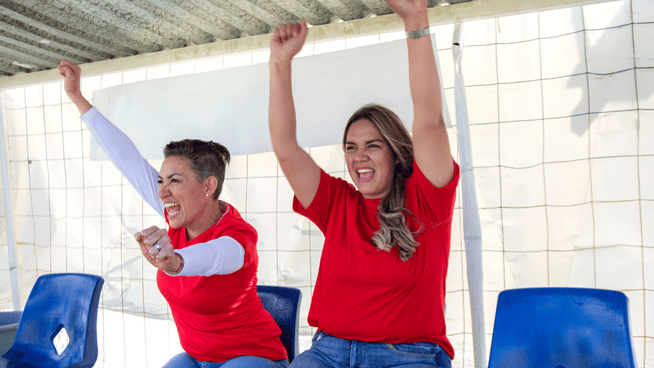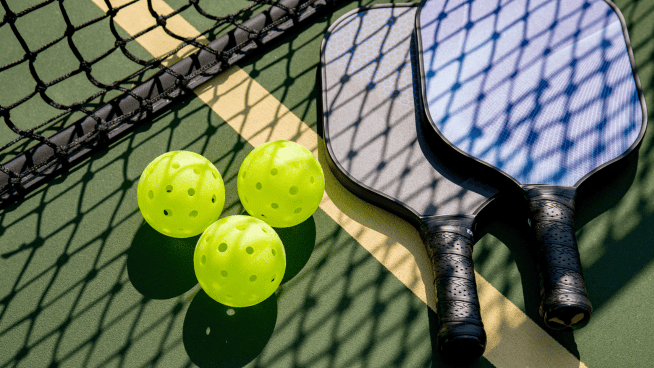The Prime Time to Build Muscle
Although it may feel like you’re building muscle during your workout, those Squats you’re doing aren’t adding an ounce of muscle mass. Size gains only happen following workouts under ideal circumstances. You may not be able to control the outcome of a game, but you can control your muscle growth by following these important post-workout guidelines:
Consume a high-carbohydrate/moderate protein meal or beverage within 15 to 30 minutes after your final rep
After a tough workout, your muscles are like sponges ready to soak up whatever you feed them. Your workout has depleted them of needed nutrients, and they need to be replenished. (Design the Perfect Muscle-Building Post-Workout Meal.) Some sample post-workout meals are:
- Chocolate milk and banana
- Peanut butter and jelly sandwich with water
Reward your muscles with rest
During heavy-duty lifting, your muscle fibers are broken down, so they need 24 to 48 hours of recovery to rebuild and grow. A good night’s sleep is strongly advised to release the natural anabolic (muscle-building) hormone HGH from the pituitary gland. (See Secrets for Better, Muscle-Building Sleep.)
Designate training days for low–intensity active recovery
Avoid consecutive high-intensity weight room sessions and high-intensity aerobic activity. They interfere with muscle-building recovery and prevent size gains. Instead, on days following lifting, take a brisk walk or light jog. (Read Value of Rest and Recovery to Sports Injury Prevention and Treatment.) This kind of “active recovery” helps you conserve your energy for the next intense session. “Passive recovery” is when you lounge around between workout sessions and do nothing.
Beware of overtraining
Chronic joint and muscle soreness and low energy are signs of overtraining, which reduces your chance to increase strength and size. If your muscles are still sore after a workout you performed two days ago, take another day off to fully recover so you’ll progress and not regress.
Continually feed muscles
Lifting weights is only one factor in the muscle-building equation. Quality (i.e., nutrient-dense) extra calories are also required. That means consuming five or six small muscle-building meals daily. (See Fuel Up Post-Training to Improve Muscle Recovery.) And don’t forget to drink plenty of water to direct those proteins and carbs to your muscles to promote growth!
RECOMMENDED FOR YOU
MOST POPULAR
The Prime Time to Build Muscle
Although it may feel like you’re building muscle during your workout, those Squats you’re doing aren’t adding an ounce of muscle mass. Size gains only happen following workouts under ideal circumstances. You may not be able to control the outcome of a game, but you can control your muscle growth by following these important post-workout guidelines:
Consume a high-carbohydrate/moderate protein meal or beverage within 15 to 30 minutes after your final rep
After a tough workout, your muscles are like sponges ready to soak up whatever you feed them. Your workout has depleted them of needed nutrients, and they need to be replenished. (Design the Perfect Muscle-Building Post-Workout Meal.) Some sample post-workout meals are:
- Chocolate milk and banana
- Peanut butter and jelly sandwich with water
Reward your muscles with rest
During heavy-duty lifting, your muscle fibers are broken down, so they need 24 to 48 hours of recovery to rebuild and grow. A good night’s sleep is strongly advised to release the natural anabolic (muscle-building) hormone HGH from the pituitary gland. (See Secrets for Better, Muscle-Building Sleep.)
Designate training days for low–intensity active recovery
Avoid consecutive high-intensity weight room sessions and high-intensity aerobic activity. They interfere with muscle-building recovery and prevent size gains. Instead, on days following lifting, take a brisk walk or light jog. (Read Value of Rest and Recovery to Sports Injury Prevention and Treatment.) This kind of “active recovery” helps you conserve your energy for the next intense session. “Passive recovery” is when you lounge around between workout sessions and do nothing.
Beware of overtraining
Chronic joint and muscle soreness and low energy are signs of overtraining, which reduces your chance to increase strength and size. If your muscles are still sore after a workout you performed two days ago, take another day off to fully recover so you’ll progress and not regress.
Continually feed muscles
Lifting weights is only one factor in the muscle-building equation. Quality (i.e., nutrient-dense) extra calories are also required. That means consuming five or six small muscle-building meals daily. (See Fuel Up Post-Training to Improve Muscle Recovery.) And don’t forget to drink plenty of water to direct those proteins and carbs to your muscles to promote growth!












